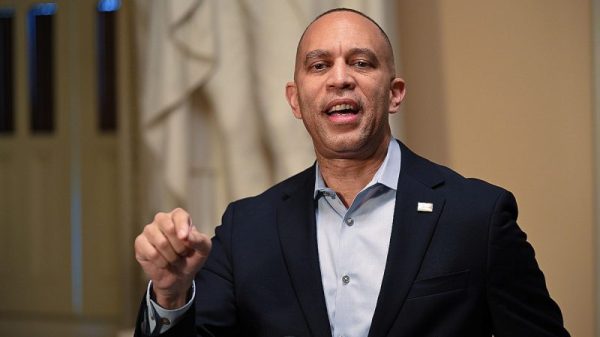In the United States, the federal debt continues to climb at an alarming rate. A big part of the explanation for the acceleration of the debt load is funding Social Security—a social program designed to provide financial aid to the elderly, disabled, and others by taxing workers and giving that money to current recipients. Not only is the federal debt growing at an untenable rate, but interest payments on the debt will increasingly consume the Federal budget, either forcing out funding for other programs, or forcing the government to print and borrow even more, leading to inflation and many other woes.
The biggest contributors to the ballooning federal debt are Medicare and Social Security. But the underlying causes are more complicated. Dealing with the federal debt is a collective action problem: a situation where people must work together to solve a problem, but where individuals have an incentive not to help, but instead take advantage of the situation. If individuals and special interests groups benefit from various subsidies, especially when widely and unequally dispersed throughout the voting population, there is an incentive for such individuals and groups to block attempts to solve the problem.
One of the other causes, though one that attracts little attention, is the sorites nature of the increasing the federal debt. As I explain in related article:
[Eating] one piece of cheesecake by itself won’t make someone fat. And eating another piece of cheesecake will not make one fat either. And so forth and so on [until it does]. The same logic applies to spending borrowed money on social programs: one more borrowed dollar on social programs by itself won’t make the difference between devouring the debt with interest payments, until it eventually does.
The nature of collective action problems and the sorites logic of building the federal debt make it hard for an individual, or even group of individuals, to make a dent in the climbing federal debt. There would likely have to be a watershed moment or sweeping crisis to awaken voters and politicians to the pitfalls of overburdening the United States with debt. And perhaps that wouldn’t even be sufficient to get their attention. To tackle these underlying causes, it is necessary for a bunch of people to work together, and yet they lack the incentive—perhaps until things become utterly unworkable —to solve the problem.
Where does leave that the individual? Good question. Because addressing the collective action nature of the federal debt is a group activity, there isn’t much that can be done by the individual themselves with regard to changing the law, policies, and norms that contribute to the federal debt. Although the debt is hard to rein in, the individual can help Social Security (a little bit) by helping themselves. The solution, for some individuals, is simple: do not retire. Before explaining this solution, though, a couple caveats are in order.
First, readers will likely retort to the suggestion against retiring that because they paid into social security their entire working lives, or thereabouts, they deserve the benefits that Social Security (and other social programs) owe them. And morally speaking, I completely agree: whatever one believes about the proper size and scope of the government, we should all agree that governments, even ones that are too big, have a moral obligation to make good on the promises they make to voters and to citizens. Nonetheless, for practical reasons, it doesn’t really matter what the government promises if it is unwilling or unable to fulfill its promises. No matter how just or righteous our claim to Social Security and other social benefits, the fact remains that such programs will have difficulty in the near future paying out full benefits to those who are deserving of them. Sometimes life isn’t fair, but then we must find workarounds to that unfairness. This isn’t to say that everyone should give up on the cause of reforming the spending habits of the federal government, but in the meantime, legitimate claims of unfairness will not pay the bills or fill our bellies.
Second, the point isn’t that one should continue in his same job indefinitely. As people age, our bodies begin to break down, mobility becomes increasingly impaired, and so forth. The idea of not retiring isn’t to claim that as individuals age, and their bodies weaken, they should keep doing a physically taxing job, but to find some line of work that one can keep one busy and engaged, even into his senior years, but that considers his advanced age and physical limitations. For the argument against retiring to have heft, it must factor in the changes people undergo as they age into their senior years. In light of the benefits of working, we should question, if not outright reject, the notion that we work to retire in the first place.
Why not retire? There are many good reasons not to retire: working regularly with colleagues provides a venue for filling one’s day, allows one to preserve social connections, and can be a source of moral and psychological support. There is some research to support the idea that retiring—where one completely stops doing any kind of work—is simply not good for the body or the mind. As they write:
Early retirement may actually be a mixed blessing because of cognition declines. Moreover, the effect of early retirement on subjective well-being seems to be negative and short lived rather than long lasting and positive. This chapter has explored one mechanism that may explain why early retirement contains negative effects: the erosion of social networks after retirement. Social isolation, in turn, diminishes the day-to-day challenges that keep people mentally fit and well because, ultimately, human beings are social entities. We find evidence that retirement in general, and early retirement in particular, reduces the size of the social network, and in particular the number of friends and other nonfamily contacts in the interpersonal milieu (and not only the number of immediate colleagues). [Emphasis added.]
Not retiring — instead, doing age-appropriate jobs — is at least a partial solution to the prospect of an insolvent Social Security trust fund, in that it empowers the individual with a source of income that isn’t tied to social security and helps to extend lives with an employment-based social network, if nothing else. And while at the individual level, not retiring will not do much to put a dent in the Social Security liability, if enough people don’t retire, it may have a major positive impact on the fiscal health of the nation. And if nothing else, not retiring mitigates the fallout, for the individual, of a hugely depleted Social Security trust fund.





































